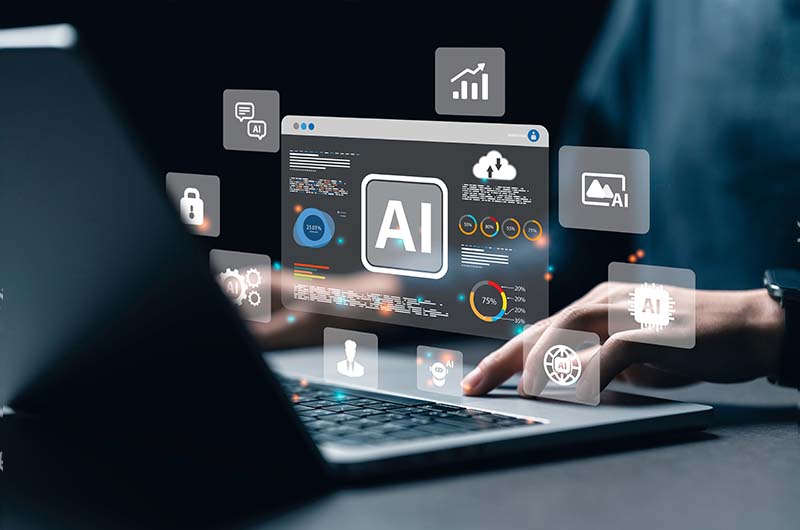
Taking the First Step: Unlocking the Potential of Generative AI
NTT DATA Begins Full-Scale Generative AI Implementation
No term has caught the imagination of business leaders and media commentators as much as 'Generative AI'. Since ChatGPT's widely publicized launch in November 2022, a wave of applications has set immense expectations for the technology, given the transformative potential it has already displayed in the day-to-day lives of workers.
As business leaders prepare to adapt to this changing landscape, they have been faced with a vast array of advice on the subject. Due to the variety of extraordinary possibilities – pattern recognition, content creation, personalization, user experience, and productivity – it can be difficult to know where to start.
What does Generative AI truly mean for your business? At NTT DATA, we are already seeing huge benefits – both for our clients and ourselves – in purpose-built, tailored Generative AI solutions, but we don't intend to stop there. Let us explain why we are increasing our investment as we begin full-scale implementation of Generative AI across our organization.
What Impact Will Generative AI Have on Society?
Generative AI, implemented in the right way, will fundamentally change how organizations operate across three categories:
- High-volume, repetitive processing
- Expert support
- Work efficiency.
In the case of high-volume, repetitive processing, Generative AI provides invaluable support in machine translation, literature search and summarization, and source code migration - automatically performing these tasks at a high speed with minimal errors. This frees up human agents to focus on the higher-order tasks that make a difference for your customers and shareholders.
Large Language Models can also lend expert advice, supporting decision-makers on work that requires highly specialized knowledge, such as legal or expert advice. Whilst humans should always remain in the loop, acting as the ultimate decision-maker, this technology will instill confidence, providing them with the necessary data and information to make precise, impactful choices.
When it comes to boosting work efficiency, Generative AI adds value all the way up the chain, from automatically creating personalized business documents to running workflows. By doing this, organizations can free up time for their workers to perform more valuable, creative, and design-oriented tasks.
However, despite the competitive advantage offered by Generative AI, we must also be aware of the risks. Factors such as the reputational and credibility impact of hallucinatory responses, as well as issues with legal and regulatory compliance, are making decision-makers hesitate as they evaluate the implications on their organization's ethical and social responsibility.

How Should Businesses Use Generative AI?
At NTT DATA and the NTT Group, we have a rich history of utilizing natural language processing (NLP) to transform our clients' value chains and deliver better experiences for their employees and customers alike. Now, we're embracing cutting-edge generative AI technology, including a Japanese version of Google's BERT model and LITRON®,a document reading AI solution, to take this a step further.
In June 2023, NTT DATA established the Global Generative AI Laboratory to promote the use of generative AI worldwide. We're applying generative AI to all processes of software development, from requirement definition to testing and standardizing this approach across our global workforce of 195,000 employees.
The laboratory's activities are based on four pillars:
- Transforming your value chain
- Changing your customer's value chain
- Providing a common platform
- Implementing strategy and governance.

Use Cases and Steps to Value Creation
Generative AI can be used in a multitude of ways: from writing emails to automatic schedule adjustment, identifying areas for product improvement based on user reviews, creating response texts, and extracting business knowledge based on past response data, to marketing support and legal violation check support.
However, businesses need more than a long list of discrete applications; they need a framework to understand and deploy Generative AI at scale across a global workforce whilst keeping efficiency and employee buy-in high.
In our framework, NTT DATA identifies four ways to use Generative AI and LLMs, which can be combined in distinct ways. These are:
- Using a general-purpose AI service as-is.
- Using a specialized model customized to suit your company.
- Using AI in your internal operations.
- Incorporating AI into your own services and becoming a service provider.
Larger organizations – especially those tasked with safeguarding private data – may find it more suitable to create their own specialized model in partnership with industry experts. However, not every organization has the same needs and goals. For many firms, AI will remain an internal tool – whereas for others, it will become a key part of their business model.
To maximize the impact of Generative AI, the key is to examine the areas of your company that are ripe for transformation, assess your level of expertise, and employ the right partnerships – making use of the four-quadrant model above to guide your decisions.
Reducing the Risk of Hallucination
To mitigate the risk of hallucinatory responses, NTT DATA offers the LITRON® Generative Assistant, an AI service that generates responses by securely connecting various data types like internal rules, work-related materials, and external data with generative AI. The four main features of this service are performance, ease of construction, flexibility, and reliability.
Before offering this service externally, we are demonstrating our trust in and commitment to this system by using it internally, providing consulting services steeped in generative AI, and sharing that knowledge to transform our customers' value chains.
If you'd like to know how we can help you begin your organization's Generative AI journey,


